Search
Did you mean: Pythia?
Summary 
Loading AI-generated summary based on World History Encyclopedia articles ...
Search Results

Definition
Parthia (Empire)
The Parthians ruled from 247 BCE to 224 CE creating a vast empire that stretched from the Mediterranean in the west to India and China in the east. East of the Caspian Sea there emerged from the steppe of Central Asia a nomadic Scythian tribe...
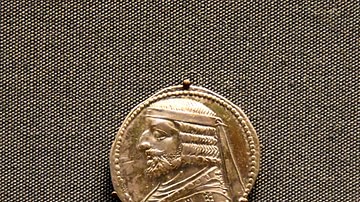
Article
Parthia: Rome's Ablest Competitor
As a superpower in its own right and in competition with Rome, Parthia's empire - ruling from 247 BCE to 224 CE - stretched between the Mediterranean in the west to India in the east. Not only did the Parthians win battles against Rome they...
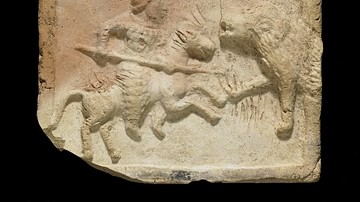
Definition
Parthian Warfare
Parthian warfare was characterized by the extensive use of cavalry and archers. Coming at enemy troops from all directions Parthian riders created confusion and wreaked havoc. They even developed the famous “Parthian shot.” Able to shoot...

Definition
Parthian Culture
Stretching between China and India in the east to the Mediterranean in the west, Parthia ruled over one of the widest expanses of empire in its time and Parthian culture flourished for 500 years (247 BCE to 224 CE). While known for their...
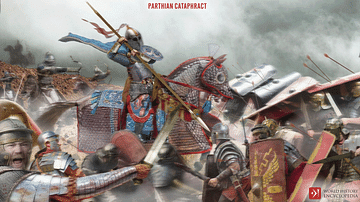
Article
Psychological Intimidation at the Battle of Carrhae
Psychological intimidation in military conflict has been an art of war since ancient times. Employing misinformation, feigned movements, subtle messaging, and overt display of aggression, its employ is meant to unnerve the enemy before engagement...
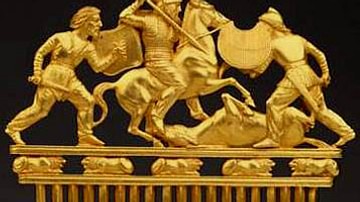
Article
Parthian-Scythian Relations
While little is written about Parthian-Scythian relations, not only did the Parthians share origins with the Scythians and cooperated militarily but social, cultural, and commercial interactions were likely as well. Essentially leading a...

Video
Antony's Invasion of Parthia (42 to 33 B.C.E.)
Sources: Suetonius, "The Life of Augustus" | https://amzn.to/3g0AKby Appian, "The Civil Wars: Book 3" | https://amzn.to/2PKEBPr Appian, "The Civil Wars: Book 4" | https://amzn.to/2PKEBPr Plutarch, "The Life of Antony" | https://amzn.to/3s9lE6b...
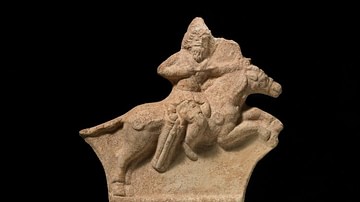
Article
The Roman-Parthian War 58-63 CE
The Roman-Parthian War of 58-63 CE was sparked off when the Parthian Empire's ruler imposed his own brother as the new king of Armenia, considered by Rome to be a quasi-neutral buffer state between the two empires. When Parthia went a step...

Definition
Parthian Art
Parthian art flourished within the Eurasian cultural corridor from the late hundreds BCE to the early 1st and 2nd centuries CE. With the Parthian Empire (247 BCE - 224 CE) stretching from India and China in the east to the Mediterranean shores...
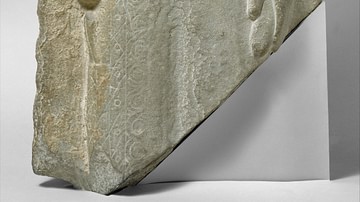
Definition
Parthian Religion
Parthian religion might be best described with two words: inclusive and evolving. As Parthia's empire held within it a variety of cultures, the Parthians wisely left each to their own beliefs and traditions, like the Seleucid Empire and the...